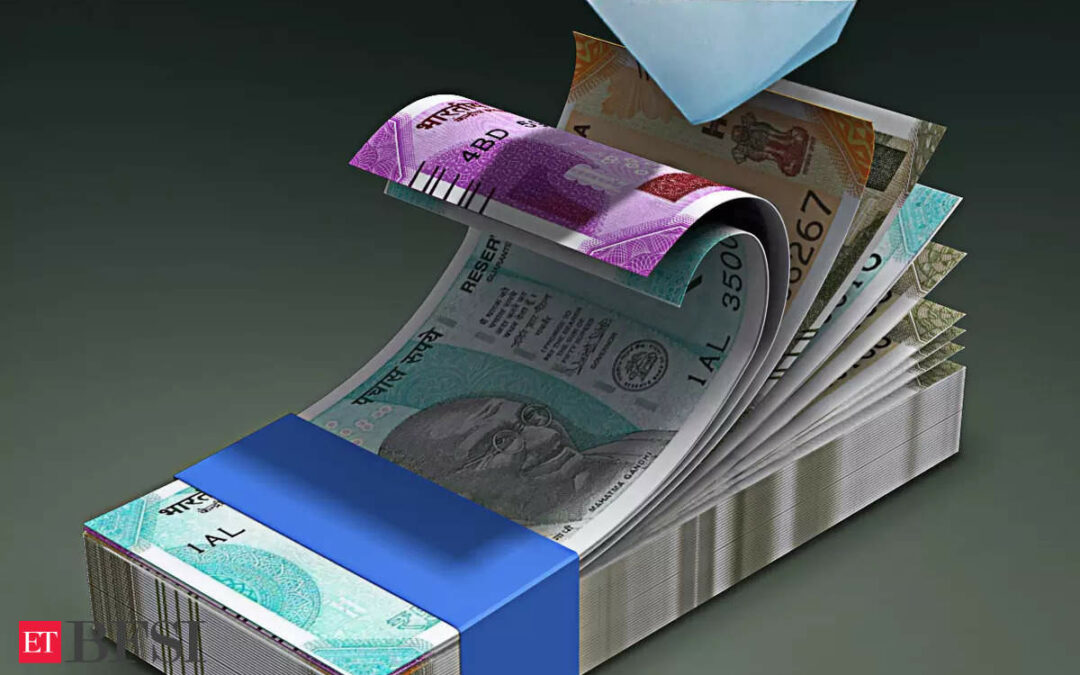Interim Budget: India’s fiscal deficit might surpass the government’s 5.9% target for FY24 due to escalated revenue expenses and a lower-than-expected nominal GDP, according to India Ratings and Research. The agency predicts that despite increased tax and non-tax revenue, an anticipated second supplementary demand for grants could escalate the deficit to 6% of GDP, slightly exceeding the budgeted limit.
“Higher-than-budgeted revenue expenditure triggered through the first and likely second supplementary demand for grants in combination with lower-than-budgeted nominal GDP will push the fiscal deficit to 6.0% of GDP, 10bp higher than budgeted 5.9%,” said Ind-Ra researchers.
Want to know all nitty-gritties about Budget? Click here
While announcing the federal budget for this fiscal year, Finance Minister Nirmala Sitharaman said India aims to narrow the fiscal gap to 5.9% of gross domestic product from 6.4% in the last financial year.
There are mushrooming speculations that the Narendra Modi-led government will soon have to unleash various fiscal measures and particularly so as to rein in galloping inflation rate.
India’s fiscal deficit for the first seven months of this fiscal year through October stood at 8.037 lakh crore rupees, or 45% of annual estimates, government data showed today. The fiscal deficit marginally narrowed from 45.6% reported in the comparable year-earlier period.
Total receipts stood at 15.91 lakh crore rupees, while overall expenditure in April to October was at 23.94 lakh crore rupees. They were 58.6% and 53.2% of this fiscal year’s budget target.
This year, non-tax revenue jumped as the Reserve Bank of India approved the transfer of Rs 87,416 crore as surplus to the central government.
This potential deviation from the fiscal target in an election year poses a challenge for the Narendra Modi government’s bid for a third term in the world’s largest democracy. The upcoming interim budget on February 1 demands a balancing act between populist measures ahead of elections and maintaining fiscal responsibility.
The Modi administration aims to sustain fiscal discipline to bolster India’s global image. Maintaining fiscal prudence is crucial for credit ratings.
Why India must stick to fiscal deficit target
Sticking to the fiscal deficit target holds immense significance for India’s economic stability. It ensures investor confidence by displaying the government’s commitment to prudent financial management, thereby supporting better credit ratings. Additionally, fiscal discipline aids in maintaining inflation control, providing financial stability, and preventing the crowding out of private investment due to excessive government borrowing.
What India can do for fiscal prudence in the Interim Budget
To adhere to fiscal prudence, the government can focus on enhancing tax collections through more efficient tax administration and broadening the tax base. Implementing measures to bolster divestment targets, which have been challenging to meet in recent years, is vital. Stricter control over revenue expenditures while prioritizing capital expenditure could also aid in maintaining fiscal discipline.
India’s recent challenges and prospects
Over the past years, India has faced challenges in meeting its divestment targets. In the ongoing fiscal year, around 20% or Rs 10,049 crore out of the earmarked Rs 51,000 crore has been garnered through minority stake sales via IPO (Initial Public Offering) and OFS (Offer For Sale).
Several strategic sales of Central Public Sector Enterprises (CPSEs) such as SCI, NMDC Steel Ltd, BEML, HLL Lifecare, and IDBI Bank are slated for completion within this fiscal year. However, the completion of due diligence and the segregation of core and non-core assets concerning most CPSEs is pending, leading to a delay in inviting financial bids.
However, it has been able to significantly ramp up tax collections – both direct and indirect. Improved tax revenues contribute to fiscal stability.
By implementing effective strategies and maintaining fiscal prudence, India can navigate the balance between electoral demands and fiscal responsibility, thereby ensuring economic stability and growth in the long run.










